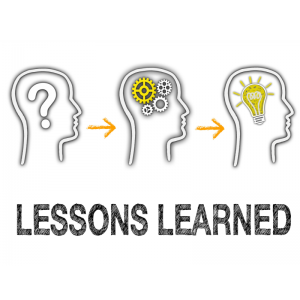
“Everyone deserves a feedback”! Yes, irrespective of age, domain, or level of job, everyone deserves to know how they are doing in what they are doing. You don’t need to be compelled by a system or guided by a diktat, you don’t need to do it formally or in a particular format, and you don’t need to make it an occasion or a process. One needs to give feedback because that’s the only way ‘one of us’ can be nudged by ‘rest of us’ to explore, evolve and progress. In fact, mammalian and primate brains are wired to respond to feedbacks and value them even if one pretends to care least or shrug it off.
However, we, as a civilized society, still haven’t come to respect the sanctity of this important concept. Neither are we keen to learn nor do we care to teach how to give feedbacks aptly. We are left to observe, interpret and formulate our own methods. Influenced heavily by our immediate environment and role models, these methods are devoid of the inputs of neuroscience and psychology – two domains that are closely associated to studying how our only social organ – brain – works. Before we discuss this point in details, watch this video to get the gist of what we are discussing, why it is important, and how it is relevant in professional and personal context…
Yes, Ambiguity has a disillusioning effect on people. If information sharing is not sufficient, benchmarks are not set properly, expectations are not stated clearly, and feedbacks lack specificity, then the resultant confusion is good neither for professional productivity nor for personal stability. In other words, in the absence of clarity and predictability, there is a negative effect on people’s work and behavior. Well, like for any behavior, the root of this point lies in neuroscience.
If we will look at our brain then we will find that our brain is like a pattern-recognition machine. That’s why, when predictability is missing, it gets into an overdrive, and uses dramatically more resources, involving highly energy-intensive prefrontal cortex, to process the sensory inputs. In Prefrontal cortex, there is a small region called Orbitofrontal cortex (OFC). With even a slight ambiguity, OFC generates an ‘error’ response to bring our attention away from all other preferences and towards that one thing.
For example, if a person gives you an ambiguous remark, the resulting uncertainty can fire up errors in the OFC. And as author David Rock says – this is like having a flashing printer-icon on your desktop when paper is jammed – the flashing cannot be ignored, and until it is resolved it is difficult to focus on other things. To acknowledge this and do the needful, social & emotional intelligence is needed. This ‘emotional & social intelligence’ is about one’s understanding of the structure and functioning of human brain, and how they affect our behaviors and choices.
This convergence of neuroscience and psychology builds the basis for developing emotional & social intelligence – the skill of managing self and connecting with others. Yes, this foundational skill of all intrapersonal & interpersonal skills can be learnt, practiced and mastered. However, it all begins with some important realizations like…“Ambiguity has a disillusioning effect on people”.
Dr. Sandeep Atre
‘Emotional & Social Intelligence’ Expert
Founder – Socialigence
Note: Socialigence (www.socialigence.net) offers self-paced video-based online course on ‘Social & Emotional Intelligence’ with content that has relevance across the globe, and delivery specifically customized according to the work-scenarios in India.
